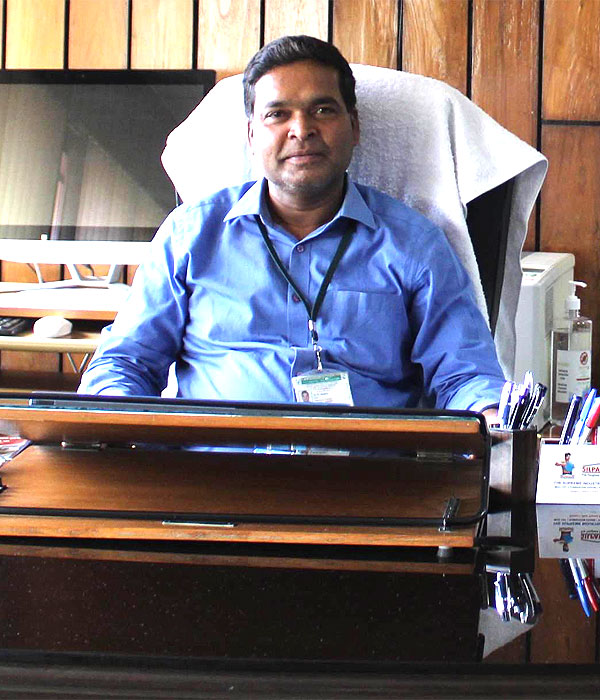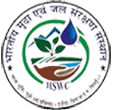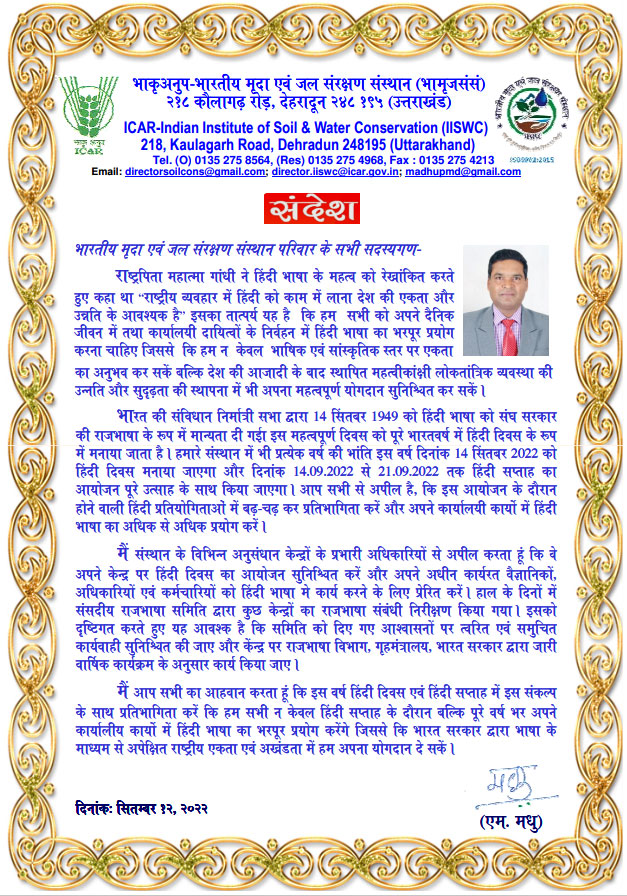
Dr. M. Madhu
-
Designation :Director, ICAR-IISWC, Dehradun
-
Phone :
-
Fax :
-
Email Id :directorsoilcons [at] gmail [dot] com, director [dot] iiswc [at] icar [dot] gov [dot] in
Soil and water are the vital natural resources essential to sustain life which are most neglected and over exploited. "Soil provides dignity to all life, so it deserves dignity". This calls everyone to honour and respect the natural resources for the future prosperity and sustenance.
Judicious management of natural resources is paramount important for sustaining various ecosystem services and achieving targets of various Sustainable Development Goals (SDGs). Soil erosion due to water is the most dominant forms of land degradation causing loss of soil nutrients, reduction in crop production, increasing recurrence of floods/droughts, and loss of biodiversity besides C-emission problems.
Loss of top soil and shrinking water resources has serious consequences on country's food security and environmental quality. Soil being a non-renewable resource and the basis for 97% of all food production, strategies to prevent soil depletion are critical for sustainable development.
The ICAR-Indian Institute of Soil and Water Conservation (ICAR-IISWC), Dehradun with eight regional research centres located at Agra, Bellary, Chandigarh, Datia, Koraput, Kota, Udhagamandalam and Vasad cater to the needs of natural resource management in different regions with the principal mandate to conserve soil and water in arable and non-arable production systems and promote farm/agricultural production.
The broader vision of the Institute is to assess the status of land degradation due to water erosion, develop and demonstrate the cost effective resource conservation technologies, quantification of eco-system services accrued due to watershed development, assess water harvesting and water availability for sustainable production and promote groundwater recharge. Main objectives of the institute include development of decision support systems, policies and Institutional mechanisms for efficient planning, execution, monitoring and evaluation of watershed development programs, demonstration of live models of watershed development applying soil and water conservation technologies, transfer of conservation technologies through various outreach programs and capacity building of different stakeholders for effective implementation of various resource conservation-cum-livelihood security programs.




